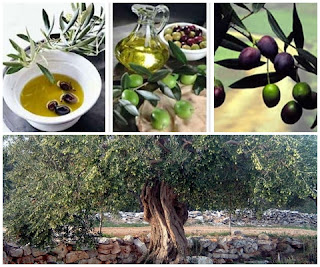
Olive oil and health
Olive oil contains 77% unsated fat acid that diminish cholesterol, and that is "bad" cholesterol, the so-called LDL cholesterol, and it protects the good one - the HDL cholesterol. Fat is a very important food in the human diet because it contains the essential vitamins - A, D, and K - and it is an excellent energy source for our organism. But numerous surveys are pointing out the benefit of the exchange of sated and complex sated fat with unsated fat. Olive oil contains only 4 to 12% complex sated fat, that, when they oxidize can lead to congestion of blood veins. For example, olive oil contains only 9% salted fat acid, whilst corn oil contains over 50% and sunflower oil even 69%! The other two ingredients of olive oil that are important for our health are vitamin E, whilst poliphenols diminish the risk of arteriosclerosis and some kinds of cancer! There are some indications that olive oil has a therapeutic effect on ulcer on digestion organs and that it prevents the appearance of gall-stones. The Greek women use olive oil in skin and hair masks; it is an excellent treatment for burns; we know that in Croatia our women use it as suntan lotion for decades, and even it was doubted for a long time about its effects, dermatologists today state that it has the UV protection factor 20!
Virgin Olive oil
The best kind of olive oil is virgin olive oil (extra virgin), and there are still many subclasses depending on taste and need. It is important for the quality of olive oil that is contains less than 1% fat acid, and that it is "cold pressed" (that should be taken into consideration when buying olive oil because every producer has to point out these qualities on the etiquette).
Namely, that is the name of the procedure of obtaining olive oil by pressing olives without the usage of any kind of dissolutions or heating. We know that most of the other plant oils are obtained by heating and adding some sort of dissolution, and that effects considerably their quality and nourishment values. Although techniques of obtaining olive oil have modernized considerably, the simple procedure in fact stays the same: the whole olive is being pressed (with its kernel!), the liquid is being separated from the dry substance, and then water is being separated from oil. What you get are, on one side, billions of sour cores, and, on the other side, the "God's elixir".
Primjedbe